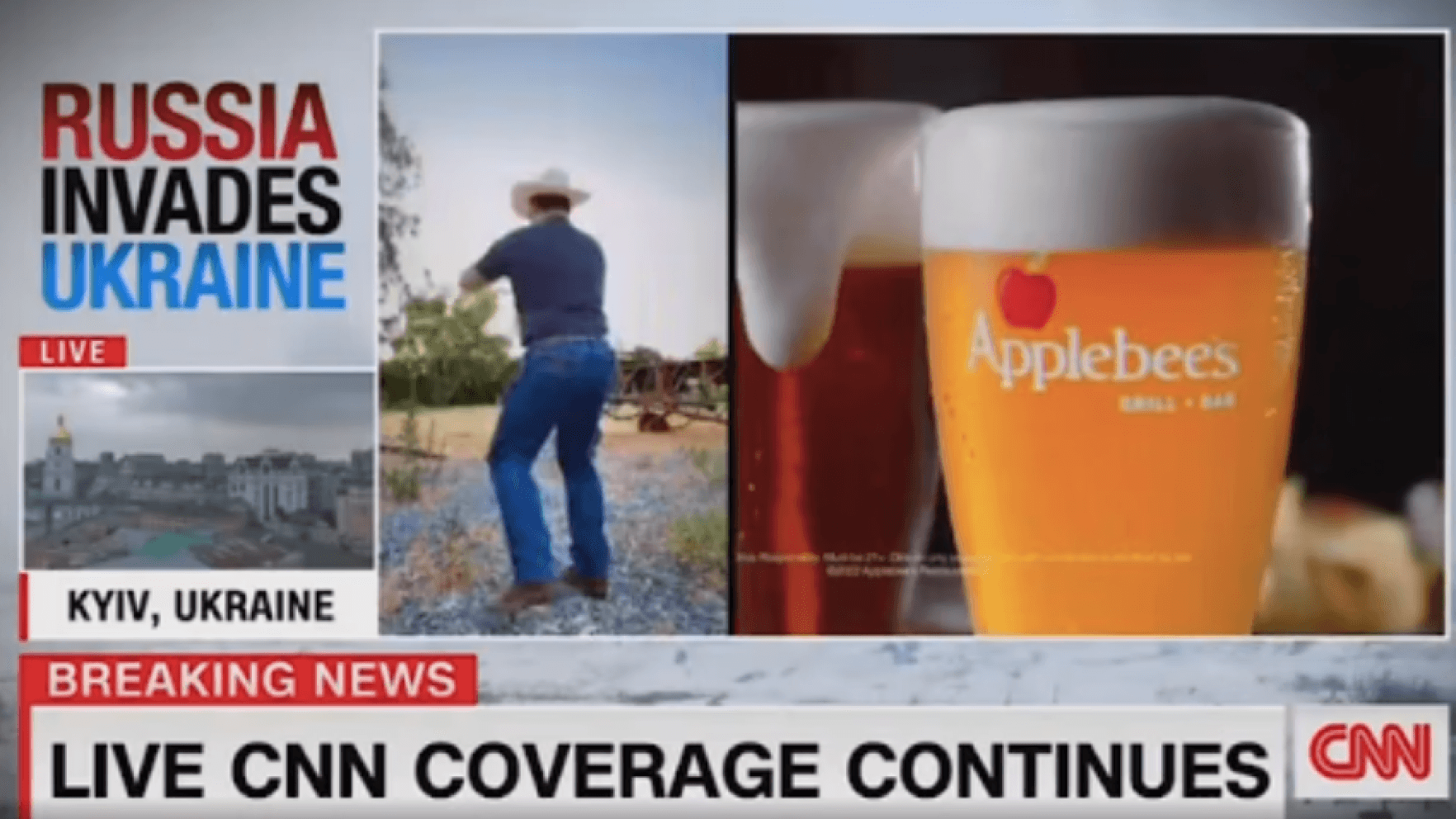BrandSafety
When Advertising Backfires: How Brands Lose Trust by Paying for the Wrong Placements
2023. 1. 30.
One poorly placed ad can damage years of brand trust — just ask Applebee’s.
Discover why brand safety matters more than ever in today’s volatile media landscape.
Are Video Ads Building Brand Value — or Destroying It?
Most of us are familiar with the Russia-Ukraine war, which began on February 24, 2022, when the Russian president announced a "special military operation" and invaded Ukraine — an event that continues to unfold today.
But what does war have to do with advertising?

Source: Wikipedia
In the early hours of the invasion, Applebee’s, a casual American dining chain, found itself at the center of a global controversy. During a CNN broadcast covering air raid sirens over Kyiv, Applebee’s cheerful cowboy-themed commercial aired simultaneously in a split-screen format known as squeezeback, where ads are shown alongside live news to increase viewability.
The result? One half of the screen displayed a warzone, the other half showcased a light-hearted ad.
Viewers were shocked.

Source: CNN/Screenshot
The ad immediately went viral on social media, with many accusing Applebee’s of insensitivity or even indirectly sponsoring war. Despite issuing a prompt statement expressing concern about the war and disappointment in the broadcaster, the damage was done.
A significant investment in premium ad space ended up deeply harming the brand.
Chapter 1:
What Is Your Brand Really Associated With?
Think of a brand — now think of the model or celebrity associated with it.
For many in Korea, the pairing of Gong Yoo and KANU coffee is an iconic example. Since their campaign began in 2011, the brand and spokesperson have grown together in public perception.
That’s why brands carefully select models who align with their values and are unlikely to stir controversy.
But how much effort goes into choosing where the ad will appear?
If Applebee’s had used a high-profile celebrity in that cowboy ad, it’s likely that individual would also have faced backlash. Yet few brands spend even one-tenth of the time choosing ad placements as they do vetting their spokespeople.

Source: CHEQ, Magna & IPG Media Lab(2018)
The Data Is Clear
According to research by CHEQ, Magna, and IPG Media Lab (2018):
Purchase intent drops by half when ads appear near harmful content
Brand recommendation likelihood drops 50%
Inappropriate ad placements severely damage trust, especially when they’re linked to national tragedies, hate content, or political extremism. For public companies, such reputational risks can even impact quarterly earnings and stock prices.
As more shocking and controversial content floods platforms to chase views and revenue, the risks for brands grow — and fast.
Chapter 2:
Rethinking Priorities in Advertising
What KPIs do marketers track for video campaigns?
CPV? CPM? VTR? Conversion rate?
All are valid metrics — but here's a more important question:
If you walked into your CEO’s office and asked,
“Which matters more — protecting the brand’s value and stock price, or improving media performance KPIs?”
What do you think the answer would be?
Most CEOs would agree: brand integrity always comes first.
Advertising exists to strengthen brand image and ultimately drive growth. But ironically, it can undermine brand equity when not managed with care. Marketers who focus solely on performance numbers may unknowingly put the brand at risk.
The Call to Action:
Make Brand Safety Everyone’s Business
It's time for brands to:
Establish robust processes for ad placement review
Monitor the content context of their media buys
Treat brand safety as a company-wide priority, not just a marketing concern
Digital content is becoming increasingly toxic, extreme, and monetized, and platforms aren’t always transparent. Marketers must now proactively assess the environments where their ads appear — and recognize that it’s no longer just about ROI.
Brand safety isn’t optional. It’s a strategic imperative.
And protecting your brand starts with knowing where your message lives.
